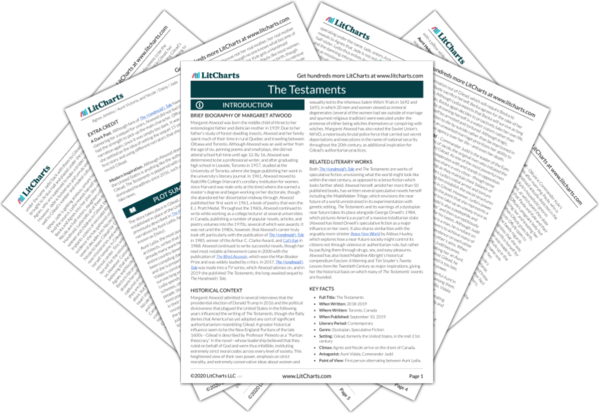Baby Nicole works as a dual symbol: for the Mayday movement she represents female liberation, while for the people of Gilead, she represents the threat of the outside world. Since Baby Nicole was smuggled out of Gilead by her Handmaid mother and Mayday operatives, Canada’s anti-Gilead movement views Baby Nicole as a symbol of liberation for women in Gilead, pasting her infant likeness on protest posters even 15 years after she was smuggled out and disappeared. Gilead, on the other hand, views the smuggling of Nicole as a theft and kidnapping—her legal father was a Commander and thus has the legal right to her in the eyes of the state. Even for women in Gilead, Baby Nicole thus represents the evils of the outside world, who mercilessly stole a baby child from her rightful family. Like the protest movement, Gilead still refers to her as Baby Nicole, even though she has not been a baby for 15 years.
However, in treating her like an icon—calling her Baby Nicole rather than realizing that she is now Nicole the young adult with her own personhood and agency—both sides effectively dehumanize her. This is particularly evident when Daisy learns that she herself is Nicole, the icon she has seen both sides fight over and claim as a symbolic token for themselves. This makes Nicole feel used, handled “like a football” rather than a human being. Baby Nicole the icon thus ultimately represents the manner in which one can dehumanize another by trying to claim them as a symbol for a movement or ideology, rather than regard them as a human being who ought to be free to make their own choices.
Baby Nicole Quotes in The Testaments
I’d basically disliked Baby Nicole since I’d had to do a paper on her. I’d got a C because I’d said she was being used as a football by both sides, and it would be the greatest happiness of the greatest number just to give her back.
I did not wish Aunt Sally dead: I simply wished her incoherent; and so it has been. The Margery Kempe Retreat House has a discreet staff.












